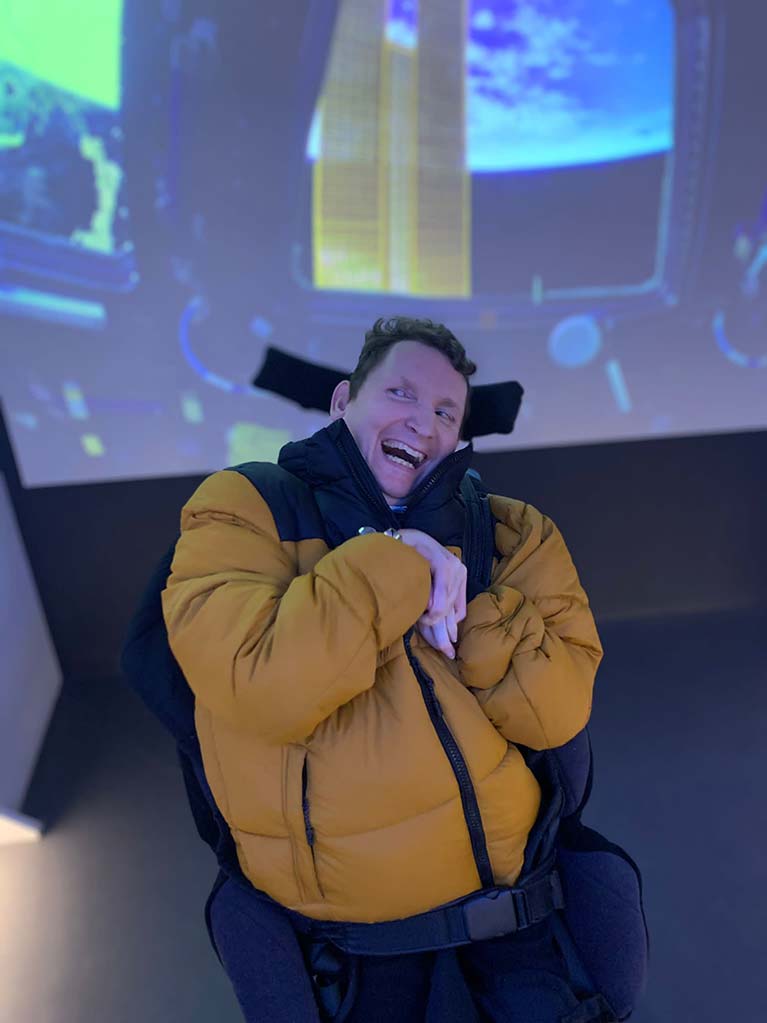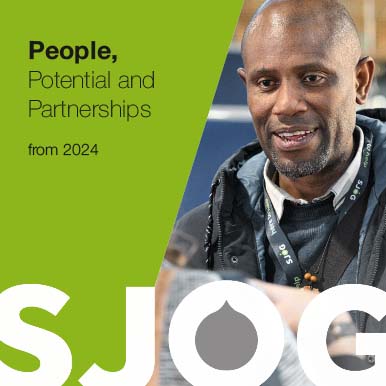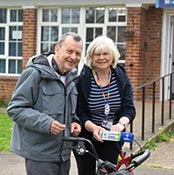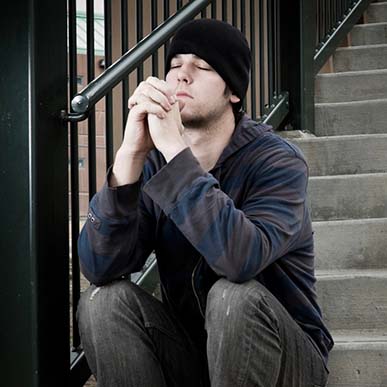Independent living: Supporting People to Live the Life They Choose at SJOG
Ioana Brezeanu, Senior Policy and Research Officer, in conversation with Joseph Eluwa, Support Worker in Modern Day Slavery Services and Disability Services

Refugee Week and Learning Disability Awareness Week 16-22 June 2025: A reminder for caring about belonging and visibility
As we marked Refugee Week and Learning Disability Awareness Week, from 16 to 22 June 2025, we celebrate how far we’ve come in reimagining care, and how much more we could do to ensure that everyone has the support they need to live the life they choose.
Refugees and people with learning disabilities may face challenges on different levels, but both groups can experience barriers that make it harder for them to have a say, feel safe, or access the support they need. In some cases, this can lead to isolation, neglect, or even exploitation. This is why our work at SJOG not only focuses on meeting need where necessary, but also on safeguarding and amplifying the voices of those most at risk, so that everyone can live fully, freely, and with dignity.
Last month’s awareness events offer us an important opportunity to reflect on the progress we’ve made, to listen to the experiences of people, and to reaffirm the importance of supporting those with learning disabilities, mental health needs, and those with lived experience of forced migration to live as independently as possible, with choice and control over their lives - whether that’s through supported housing, personal assistance, or advocacy, our approach reflects Saint John’s of God values: hospitality, compassion and respect.
Supporting people to live as independently as possible, with choice and control over their lives
The idea of independent living has a long history in the disability rights movement. It emerged from the belief that people should have the freedom to shape their own lives, make their own decisions, and take part in their communities as equals. Over time, this belief has grown into a core principle that shapes the way we look at care today - not as something that does things to people, but as something that works for and with them. Approaches such as the social model of disability, trauma-informed care, and the capabilities one have all helped reframe support as something that enhances agency rather than restricts it.
For better understanding how independent living is perceived and implemented in SJOG services, one of our colleagues, Joseph Eluwa, who is both a support worker in a disability service and in a safe house for survivors of modern-day slavery (MDS), shared his expertise and reflections around the differences and commonalities between the two different communities.
“Both roles are about creating possibilities. When people are supported in the right way, they begin to see themselves differently - not as someone who needs help, but as someone with power, agency, and potential.”
In our disability services, this might involve assisting with personal care, mobility, communication, and social activities. In MDS services, support includes helping people access healthcare, legal assistance, education, and housing. Whether someone is recovering from exploitation or navigating life with a disability, independence is not a fixed destination, it’s a dynamic process, paving the way for long-term recovery and community integration.
Because ultimately, independent living is not just about being able to do things alone, it is about having the right support, the right relationships, and the right to choose.
Refugee Week: ‘Community is Our Superpower’ – Rebuilding Life After Exploitation
People who have experienced modern slavery often arrive in services traumatised, isolated and unsure of what comes next. But through person-led recovery planning, legal and housing support, and opportunities to build life skills, they begin to regain trust and confidence.
The goal is always to move people on—but not before they’re ready. That means making sure they have the right tools, the right support network, and most importantly, the belief that they can thrive. Whether that’s learning English, connecting with employment support, or simply being treated with respect, these building blocks help people start anew, while preventing retraumatisation and risk of exploitation. In Joseph’s words: “We’re not just helping someone recover. We’re helping them see themselves as part of a community again.”
Learning Disability Week: ‘Do You See Me?’ – Supporting Everyday Choices
Seeing someone means recognising their preferences, honouring their choices, and enabling them to shape their own day, their own care, and their own goals. For SJOG, supporting independence means starting with individual choices.
At Lindisfarne, Joseph supports individuals with complex needs, many of whom are non-verbal or have fluctuating capacity.
“Even when people can’t speak, they’re communicating. It’s our job to listen - through their body language, routines, or simply knowing when they want space.”
It might also mean helping someone get dressed, prepare meals, or choose an activity they love. For others, it’s about navigating mobility barriers or developing relationships with peers. Joseph describes this day-to-day support: “Even things that seem small, like choosing what to wear, are massive when it comes to self-expression and control.”
For people with complex physical or learning disabilities, these decisions are not just preferences; they are acts of autonomy. The service empowers those we support to participate in decisions around their care, engage with their local community, and enjoy a sense of ownership over their day. And it’s not all care plans and routines, there are movie nights, cultural celebrations, and trips out into the world that remind everyone involved that independence is not only about isolation, but also about participation.
Conclusion: A Shared Vision for Independence and choice
Whether someone is recovering from exploitation or living with a disability, independence means something different to each person. At SJOG, we don’t define it for people, we work with them to find out what it means to them.
What both groups share is a right to live with choice, control, and community. They deserve systems that listen and support them to achieve this goal, and relationships that built on trust.
Refugee Week and Learning Disability Week remind us that true independence is shaped by visibility and belonging. When people are seen, supported, and connected, they are better able to live the life they choose - on their own terms.
In Joseph’s words:
“Doing good does you good. And every day, I go home knowing I helped someone take a step toward the life they want. That’s what makes the work worthwhile.”




